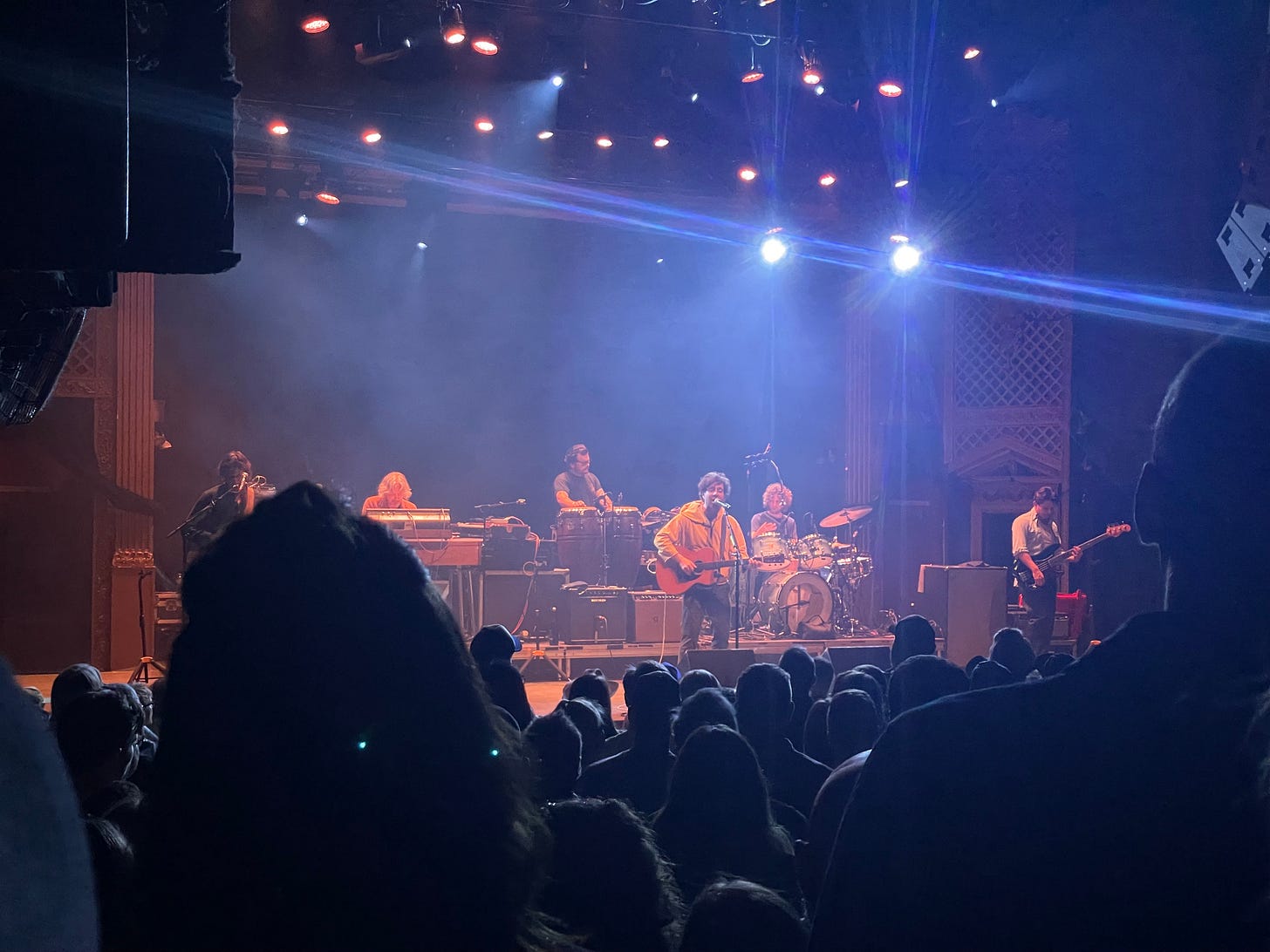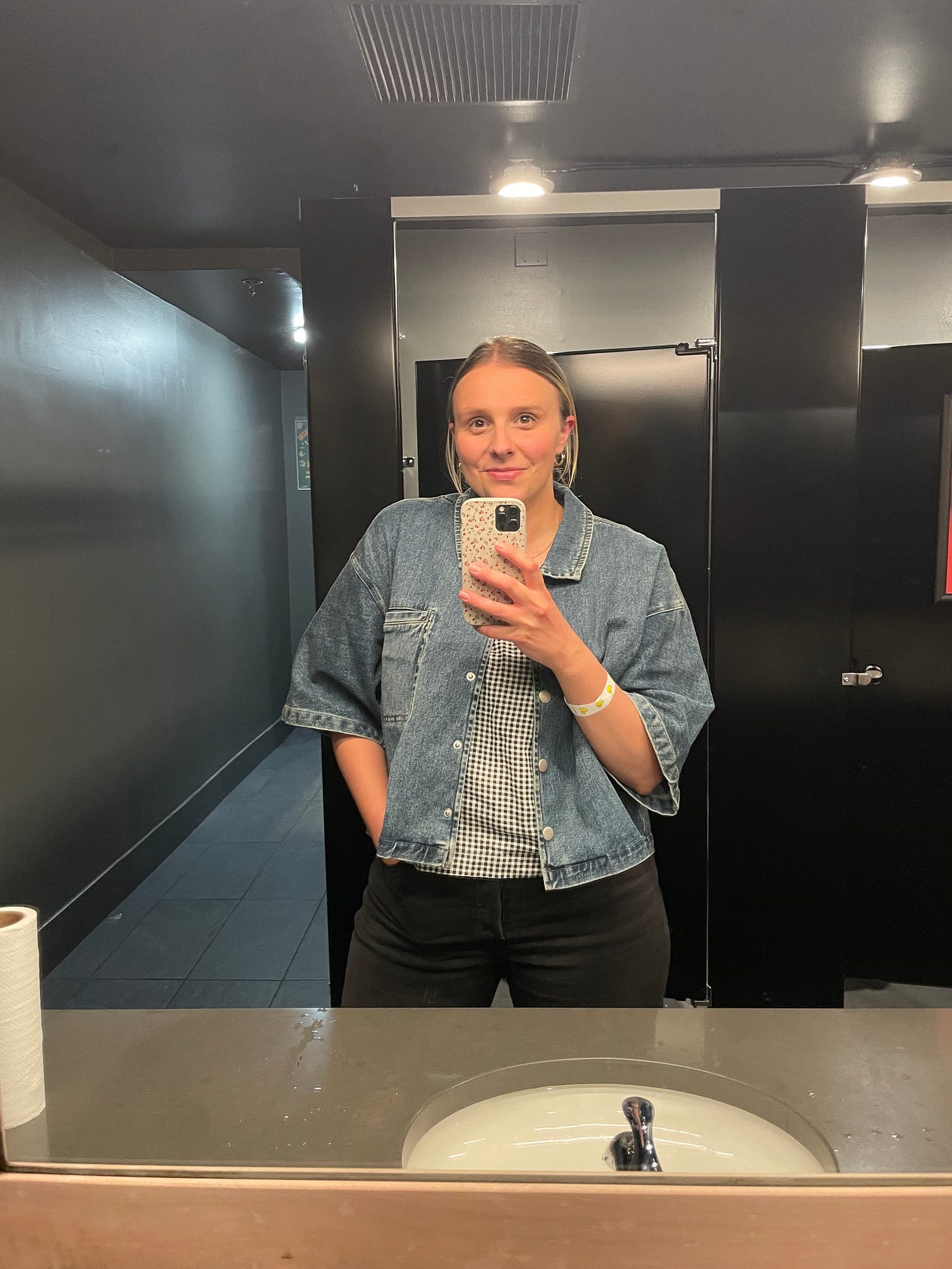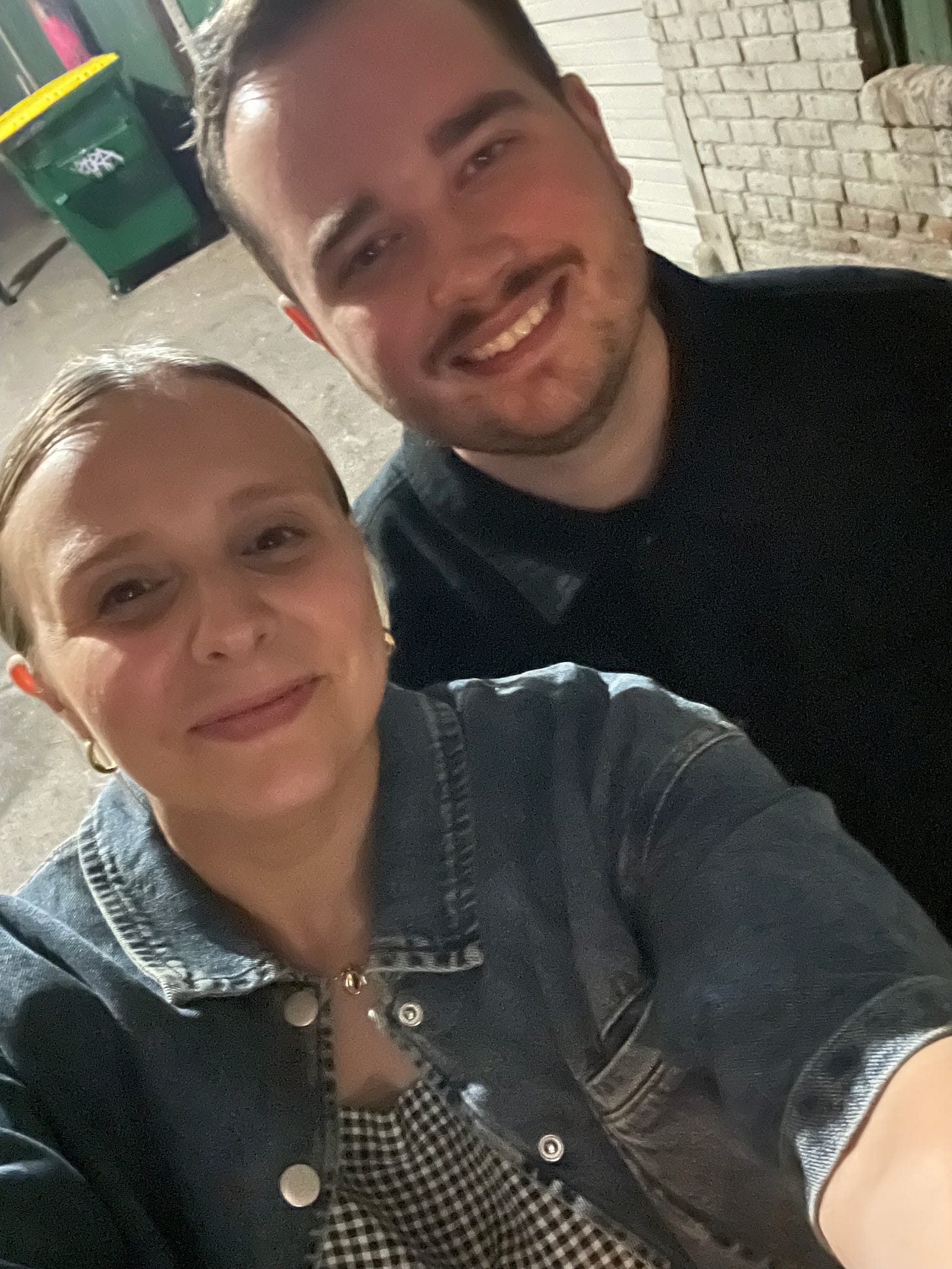Collectively figuring out how to be human
“I LOVE HUMANS,” I half-yelled, exaggerating the words on my lips so my husband could make out the sentiment over the roar of the crowd.
He smiled and nodded back.
I turned back to the band, my obnoxious smile not letting up.
We were on Colfax Avenue in Denver inside a dusty, one-hundred-year-old, standing-room-only theatre listening to a band we thought was pretty niche, surrounded by a huge crowd of people who also thought said-band was pretty niche.
The theatre was painted red and black and smelled like weed, and I felt completely out of place in my breastmilk-stained nursing bra and outfit that screamed, “I don’t get out much, but I’m excited to be here!”
I ordered a Jack and Coke (only after asking my husband what he thought I’d like from the bar), so I could feel less awkward standing in the crowd with nothing to do with my hands.
And a few songs in, I just could not stop smiling.
I mean, how could you not smile when you’re surrounded by grown adults throwing up their arms and clapping their hands and singing at the top of their lungs on a random Wednesday night?
The whole atmosphere seemed so fun and carefree.
But that was only the surface.
The lyrics of the songs told a different story—well, many stories. Stories of love lost, childhood, politics, spirituality, relationships, and searching for identity.
The same humans who spent all day staring at their screens—robotically crunching numbers and solving organizational issues and catering to the bottom line—were now here together, for no other reason than to dance and sing about being human.
Out loud, we were whooping and hollering and clapping. But internally, we were letting out a collective sigh of relief. It was as if each person was whispering to the one next to them, “I see your humanity. And I think you see mine.”
And in that moment, we could let everything else go.
It’s funny that music seems like the only societally-accepted way for a masculine man to write poetry. And how we’re all comfortable publicly singing lyrics about deep and vulnerable things we’d never say out loud, sometimes even to our closest friends.
Music seems to make it easier for us to open up about harsh realities. I’ve seen a similar phenomenon happen around fires on back patios and under the stars on camping trips.
Even though I didn’t relate to every lyric and might have had a different worldview from some of the people onstage or standing next to me, being in that atmosphere was strangely comforting.
Because at the end of the day, we’re all just trying to figure out how to be human.
And to stand together and acknowledge that, opening up about our biggest questions and fears and epiphanies, is one of the most powerful things we can do.
Last night was a lifesaving reminder that when I feel like I’m at the end of myself, people are still gathering in dusty old theatres and around campfires and under the stars, collectively inching closer toward discovering what it truly means to be human.
Even when wars are raging and families are fighting and lies are corrupting, the music’s still playing.
Sarah








